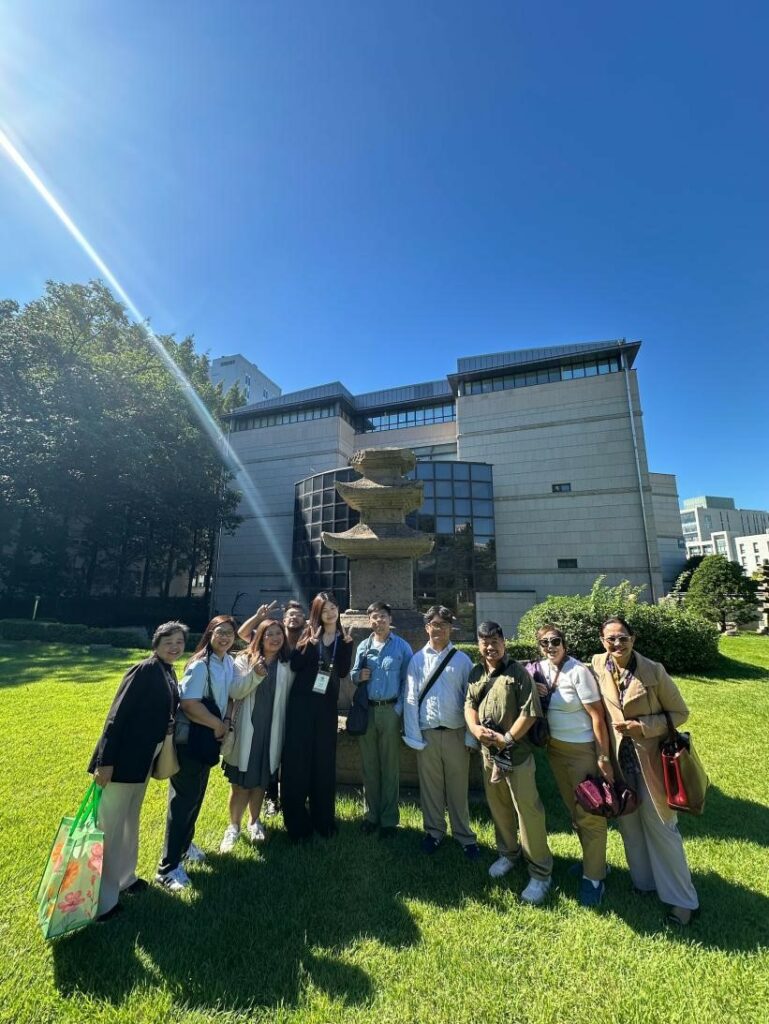by: Genevieve B. Kupang and Karl Matthieu B. Rillera
On September 22, 2024, a delegation from Baguio Central University (BCU), led by President Dr. Margarita Cecilda B. Rillera and Mr. Oscar B. Rillera, MBA, secretary and treasurer of the Board of Trustees, visited Yonsei University in Seoul, Korea. QS World University Rankings has named Yonsei University, the top private university in Asia for 2024. The university also ranked 76th worldwide. The visit aimed to benchmark Yonsei’s innovative practices, academic excellence, and internationalization efforts, with the intention of further enhancing BCU’s own institutional strategies.
The delegation included key BCU leaders such as Dr. Elma D. Donaal, Vice President for Academic Affairs, Ma’am Amalia Ancheta, Vice President for Finance, Dr. Genevieve B. Kupang, Dean of the Graduate School and Internationalization Representative, and Mr. Karl Matthieu Rillera, Marketing Officer. Accompanying them were BCU owners Michaela Caryl Rillera, Angelo Dominic Rillera, and John Jacob Rillera.
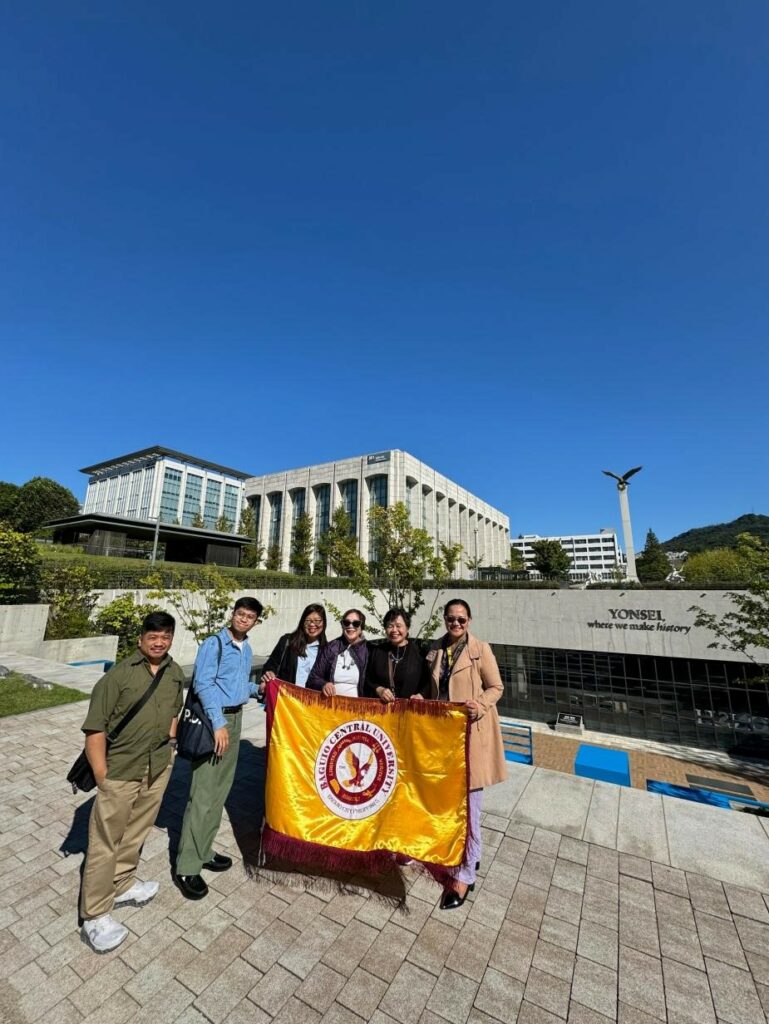
Baguio Central University Administrators in Yonsei University Alumni Hall, a symbol of academic excellence and tradition in one of South Korea’s most prestigious universities.
The delegation was warmly welcomed and guided by Jiu Shin, a student ambassador from Yonsei University, who is currently pursuing a degree in Instrumental Music with a focus on violin at the College of Music. The tour provided the BCU team with a firsthand look at Yonsei’s historic significant personalities, heritage, state-of-the-art facilities and robust academic environment, fostering discussions and learning opportunities. Interestingly, the majestic eagle in the background of the above picture is a symbol for both Yonsei University and Baguio Central University. It is a nod to these shared values symbolizing strength, courage, and leadership which are qualities associated with successful institutions of higher learning.
Yonsei University: A Prestigious Institution in South Korea

The facade of Yonsei University’s Alumni Hall, featuring the iconic eagle statue, symbolizing strength and freedom, along with the university’s signature blue accents on the tables, reflecting Yonsei’s proud academic heritage.
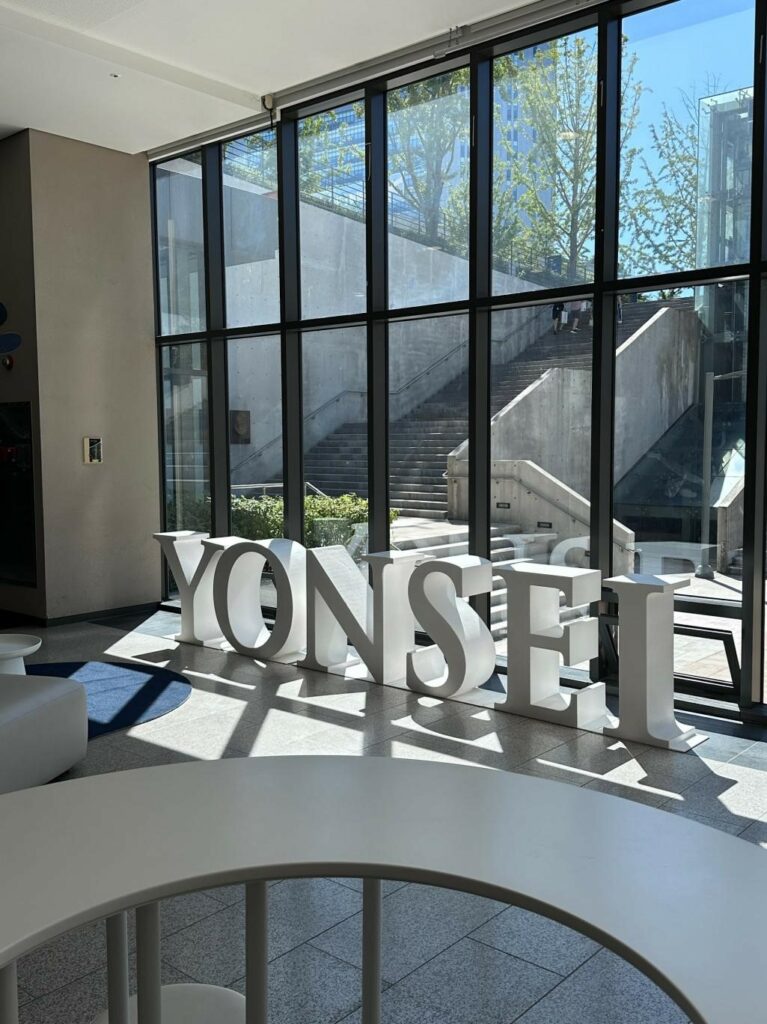
A standee featuring the University’s name, prominently displayed in the lobby.
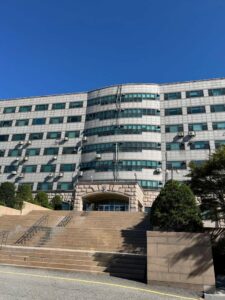
The facade of one of the engineering buildings in Yonsei University, showcasing the institution’s dedication to advanced technology and innovation in engineering.
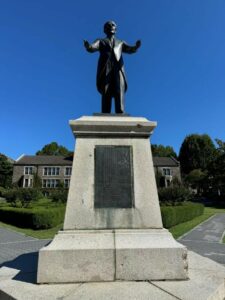
Statue of Dr. Horace Grant Underwood, Yonsei University’s visionary founder.
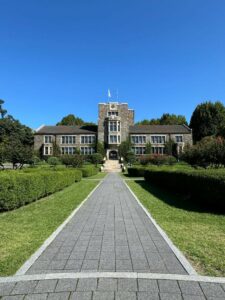
The historic garden of Yonsei University, showcasing the facade of Underwood Hall, one of the original buildings constructed over a century ago.
Yonsei University’s origins date back to April 10th, 1885, when it began as Korea’s first modern hospital, “Gwanghyewon”, later renamed “Chejungwon” by King Kojong. Founded through the efforts of medical missionary Horace N. Allen and educator-missionary Horace G. Underwood, it grew into two distinct institutions: Severance Medical College and Yonhi College, which later merged to become Yonsei
University. Throughout its history, Yonsei played a vital role in Korea’s modernization and independence, especially during Japanese colonization and after the Korean War.
Yonsei University is one of South Korea’s leading private universities and is part of the prestigious “SKY” universities, alongside Seoul National University and Korea University. With a rich history dating back to the 19th century, Yonsei was established through the merger of Yonhi College and Severance Union Medical College. Today, it operates across multiple campuses, including Sinchon, Wonju, and the international campus in Songdo, and serves over 30,000 undergraduate students and 12,000 postgraduate students (Shin, 2024). Yonsei University is particularly renowned for its strong research programs, with over 120 research institutes contributing to advancements in various academic fields, including technology and medicine.
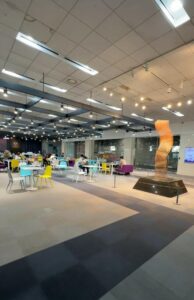
One of the four student lounges within the library, offering a comfortable space for study.
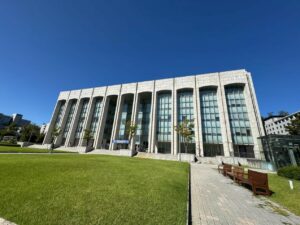
There are five libraries at Yonsei University. Pictured here is the facade of the Central Library, adjacent to the Yonsei-Samsung Library and Law Library, the latter symbolizing knowledge through its architectural representation of stacked books.
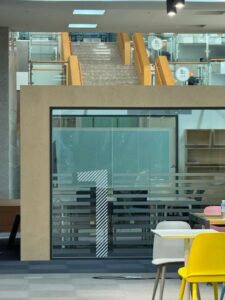
A private study space within the library where students collaborate and work on group projects.
Yonsei”s commitment to innovation and education, grounded in Christian principles, has enabled it to produce influential leaders and professionals in South Korea and beyond. Its “Smart Campus” initiative, for example, aims to integrate technology into student learning and campus life, fostering an enhanced educational experience (Times Higher Education, 2024). This approach aligns with BCU’s goal to modernize and internationalize its own educational practices.
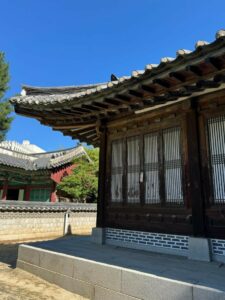
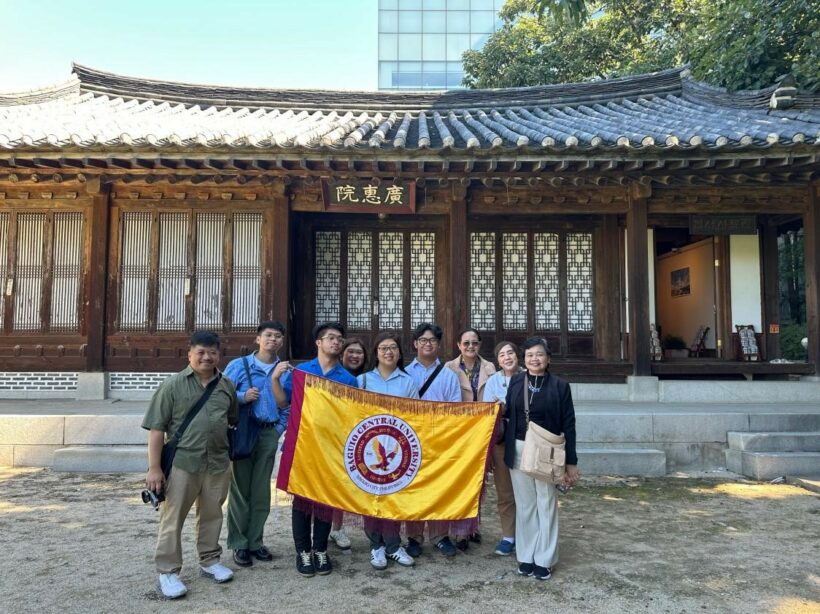
BCU delegates at Yonhi Palace, the former residence of King Taejong, now part of Yonsei University. This visit underscores our dedication to understanding Korea’s rich heritage and adds valuable insights for the cultural mapper’s collection.
Dr. Elma D. Donaal, the VP for academic affairs had this to say: “My utmost gratitude goes to Madam President Maricel and her family for the incredible opportunity to experience university benchmarking at Yonsei University—one of the largest and most prestigious universities in South Korea. With over a hundred buildings and more than a million students, including over 4,000 international students, Yonsei University is truly a global academic powerhouse. It is highly advanced in technology, engineering, medicine, cultural rootedness, and various other programs, making it a remarkable institution to learn from.”
Amalia F. Ancheta, CPA, the VP for Finance at BCU expressed: “Yonsei University is a special place, a gem in the heart of South Korea. The sprawling campus and beautiful buildings create an inspiring atmosphere for focused study among students. The combination of beauty and excellence make it world-class.”
Dr. Genevieve B. Kupang, one of the board of directors of the Cordillera Association of International Relations Officers (CAIRO) added: “I envision a good number of Filipino students, faculty, and researchers benefiting from Yonsei University’s rich academic traditions, state-of-the-art facilities, and
global perspectives. By learning from such a renowned institution, we can strengthen our programs for the challenges of the 21st century. I heard from fellow Pressenza contributor Bereket Alemayehu, an Ethiopian photo artist, social activist & writer based in Seoul, that he has a friend in the Sociology department. For multidisciplinary and interdisciplinary studies, I wish to collaborate in research with some of the scholars in this university.”
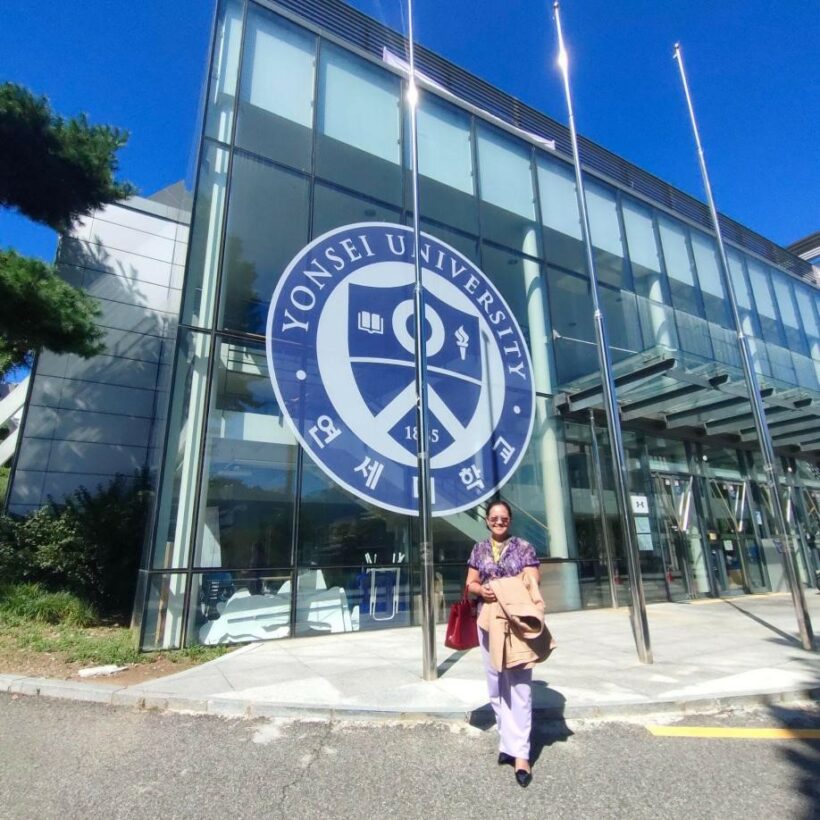
Dean Genevieve B. Kupang was impressed by the state-of-the-art facilities at Yonsei University. It was truly an inspiring experience!
#BCUVisitsYonseiUniversity
#BCU’sInternationalization’sEfforts&LearningJourney
BCU’s benchmarking visit marks a step toward opening its academic ties with international institutions and adopting best practices to drive future growth. By learning from Yonsei University’s exemplary academic and operational strategies, BCU continues to contribute to higher education in the Philippines.
References:
Shin, J. (2024). Personal communication with the student ambassador of Yonsei University during Baguio Central University’s benchmarking visit. Yonsei University, Seoul, South Korea.
Times Higher Education. (2024). Yonsei University. https://www.timeshighereducation.com


